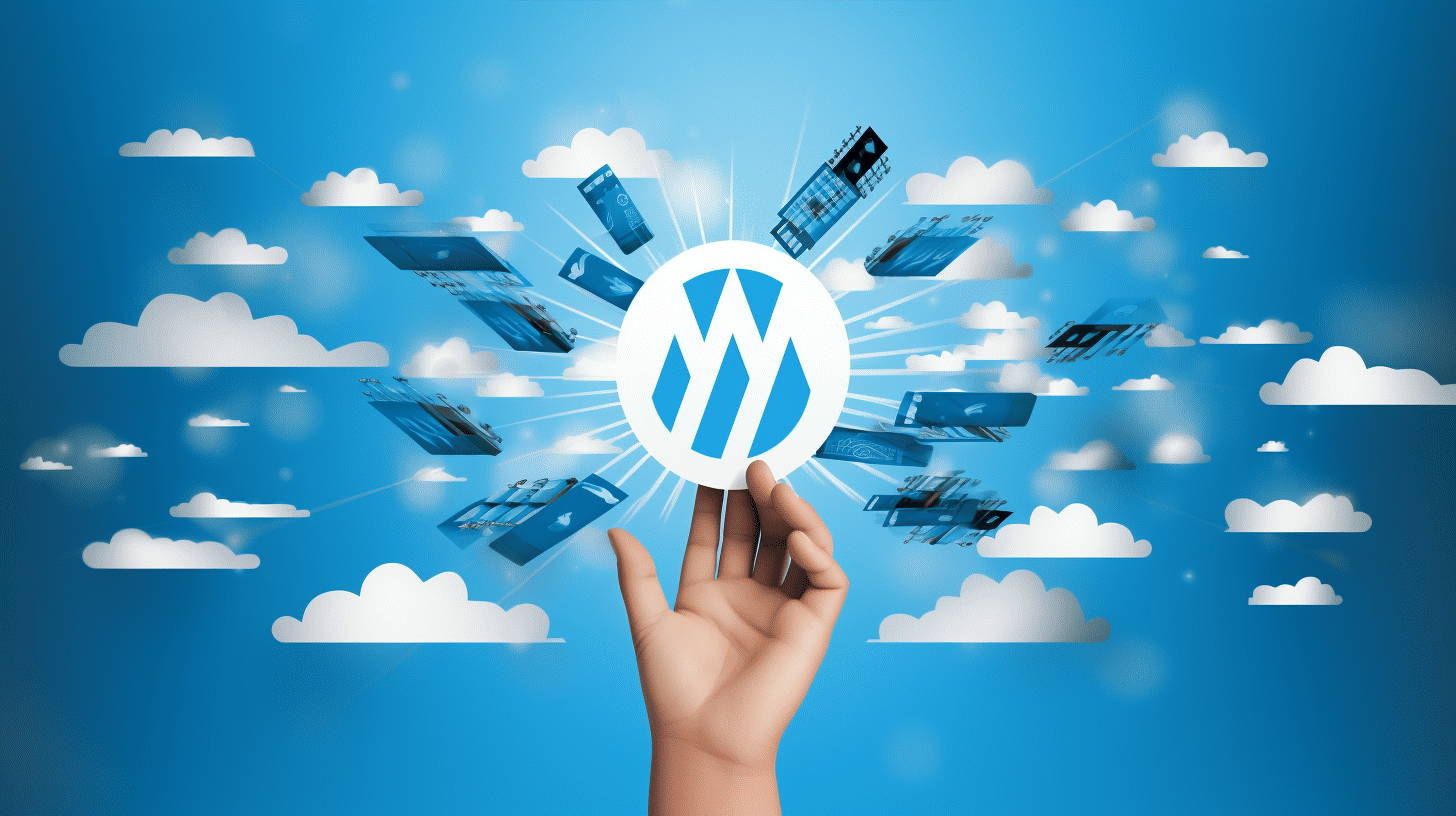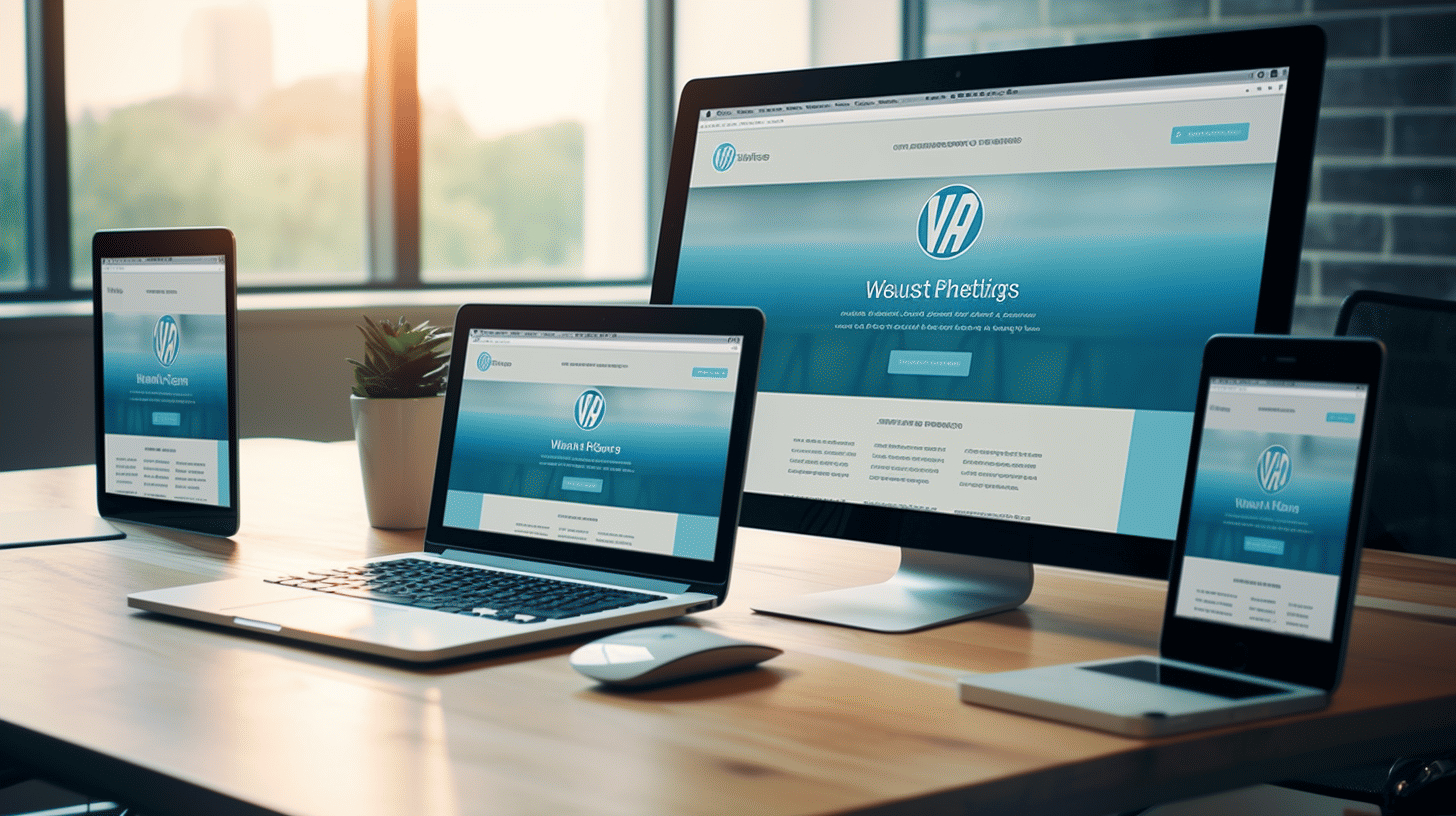要想在线发展业务,拥有一个快速可靠的网站至关重要。加载缓慢的网页不仅会让访问者感到沮丧,还会导致用户体验不佳和搜索引擎排名下降。这就是 WordPress 扩展解决方案发挥作用的地方。
🚀 为什么 WordPress 扩展很重要?
WordPress 是全球最受欢迎的内容管理系统 (CMS) 之一,为数百万个网站提供支持。虽然 WordPress 提供了用户友好的界面和大量插件和主题,但如果未针对可扩展性进行适当优化,它可能会变得缓慢。
随着您的业务发展和网站吸引的流量不断增加,确保您的 WordPress 网站能够处理不断增长的需求而不影响性能至关重要。可扩展性使您的网站能够处理更大的流量,从而带来无缝的用户体验和更好的搜索引擎排名。
但是哪些因素会影响 WordPress 的性能和可扩展性?有哪些解决方案可以帮助您有效地扩展 WordPress 网站?在以下部分中,我们将详细探讨这些问题,为您提供有价值的见解和实用的解决方案,以增强 WordPress 网站的性能。让我们开始吧!
了解 WordPress 扩展
可扩展性对业务增长的重要性
在快节奏的数字世界中,拥有可扩展的网站对于任何企业的发展和成功都至关重要。可扩展性是指网站在不影响其性能的情况下处理不断增加的流量、数据和交易的能力。
对于使用 WordPress 作为网站平台的企业来说,了解和实施可扩展性措施至关重要。以下是可扩展性对业务增长很重要的一些原因:
- 改善用户体验: 缓慢且反应迟钝的网站可能会让潜在客户望而却步。通过确保可扩展性,企业可以为用户提供无缝的浏览体验,让他们保持参与度并增加转化机会。
- 更高的搜索引擎排名: 像 Google 这样的搜索引擎会优先考虑加载速度快的网站。可扩展的网站不仅可以改善用户体验,还可以促进搜索引擎优化 (SEO),从而提高知名度和自然流量。
- 处理增加的流量: 随着业务的增长,网站访客数量也会增长。可扩展性确保即使在流量高峰期,您的网站也能处理增加的负载,而不会崩溃或变慢。
- 未来扩展的灵活性: 可扩展性可轻松实现可扩展性,这意味着您可以适应不断增加的网站功能、添加新功能并无缝集成第三方工具。这种灵活性使您的业务能够适应不断变化的客户需求并保持竞争优势。
- 成本效率: 可扩展性消除了频繁升级硬件或昂贵服务器配置的需要。通过优化网站的性能和容量,您可以节省基础设施和维护成本,从而将资源分配到业务的其他领域。
为了实现 WordPress 网站的最佳可扩展性,请考虑以下策略:
- 缓存: 实施缓存解决方案(例如 WordPress 插件或内容分发网络 (CDN))来存储静态内容并减少服务器负载。
- 内容优化: 压缩图像、缩小 CSS 和 JavaScript 文件并优化数据库查询以减少页面加载时间。
- 负载平衡: 在多台服务器之间分配流量以防止出现瓶颈并确保一致的性能,尤其是在高流量时期。
- 可扩展托管: 选择提供可扩展解决方案(如云托管或虚拟专用服务器 (VPS))的托管服务提供商,这样您就可以随着网站的发展轻松增加资源。
总之,可扩展性是 WordPress 网站管理的重要组成部分。通过了解其重要性并实施正确的策略,企业可以确保其网站能够处理不断增长的流量,提供出色的用户体验,并支持其持续增长和成功。
影响 WordPress 性能和可扩展性的因素
众所周知,快速高效的网站对于吸引和留住访客至关重要。加载缓慢的网站会导致用户感到沮丧,并很快离开,这可能会损害您的在线形象和业务目标。对于 WordPress 网站,有几个因素会影响性能和可扩展性。让我们探讨在确定 WordPress 网站的速度和可扩展性方面发挥重要作用的三个关键因素。
🌐 网站流量
您的网站所接收的流量量会对其性能产生重大影响。随着越来越多的用户同时访问您的网站,服务器需要处理更大的负载,这可能会导致响应时间变慢和性能下降。与网站流量相关的一些因素可能会影响您的 WordPress 网站的性能,包括:
- 交通高峰期:确定网站流量最高的时间或特定时间段至关重要。这些数据可以帮助您优化服务器资源,并确保您的网站能够在这些高峰时段处理增加的流量。
- 缓存:实施缓存解决方案可通过存储网页的静态版本来显著提高网站的性能。这可减少服务器负载,并允许在用户访问网站时更快地检索内容。
💻 服务器资源
服务器上可用的资源在确定 WordPress 网站的性能和可扩展性方面起着至关重要的作用。服务器资源不足会导致加载时间变慢和响应能力降低。与服务器资源相关的可能影响 WordPress 网站性能的关键因素包括:
- 托管服务提供商:选择合适的托管服务提供商至关重要。选择提供可靠且可扩展的托管套餐的提供商,这些套餐专门针对 WordPress 网站进行了优化。这可确保您的网站拥有处理增加的流量和保持最佳性能所需的资源。
- 服务器配置:正确配置服务器可以显著影响性能。利用内容分发网络 (CDN)、缓存机制和优化服务器端脚本等技术可以帮助提高 WordPress 网站的速度和可扩展性。
🎨主题和插件优化
您为 WordPress 网站选择的主题和插件会对其整体性能和可扩展性产生重大影响。优化不佳的主题和插件会降低网站速度并导致用户体验不佳。在主题和插件优化方面,请注意以下几点:
- 主题选择:选择符合您网站功能和设计要求的轻量级且编码良好的主题。避免使用带有您不需要的过多功能的臃肿主题,因为它们会对性能产生负面影响。
- 插件使用:请注意您安装的插件的数量和功能。仅使用必需且定期更新的插件。卸载所有不必要的插件,因为它们会给您的网站带来不必要的负担并影响性能。
在本节中,我们探讨了可能影响 WordPress 网站性能和可扩展性的因素。请记住定期监控和优化这些元素,以确保您的网站提供快速、无缝的用户体验,无论其流量水平如何。通过优化网站流量、服务器资源以及主题和插件使用情况,您可以增强 WordPress 网站的性能和可扩展性。
顶级 WordPress 扩展解决方案
您是否对 WordPress 网站加载缓慢感到沮丧?您是否发现自己经常遇到性能问题和服务器过载?别担心,因为我们拥有顶级的 WordPress 扩展解决方案,可帮助您优化网站的速度和性能。这些解决方案旨在处理增加的流量并确保您的访问者拥有无缝的浏览体验。
内容分发网络(CDN)🌐
提高网站加载速度和减少服务器负载的最有效方法之一是使用内容分发网络 (CDN)。CDN 是位于不同地理位置的服务器网络,允许从最靠近访问者位置的服务器分发网站内容。这大大减少了加载网站页面所需的时间。
CDN 的工作原理如下:
- 当访问者请求查看您的网站时,CDN 会识别最靠近访问者所在地点的服务器。
- CDN 在该服务器上缓存您网站的静态文件,如图像、CSS 和 JavaScript。
- 当访问者访问您的网站时,文件将从附近的服务器传送,从而缩短加载时间。
通过实施 CDN,您不仅可以改善用户体验,还可以减轻服务器的压力,确保您的网站可以处理高流量而不影响性能。
缓存插件
另一种加快页面传输速度并减少服务器负载的有效方法是使用缓存插件。这些插件会创建动态网页的静态 HTML 版本,无需为每个访问者执行耗时的数据库查询和渲染过程。
以下是缓存插件的好处:
- 页面加载速度更快:缓存插件存储您的网页的静态版本,允许它们直接提供给访问者,而无需耗时的过程。
- 减少服务器负载:通过提供静态文件而不是动态生成每个页面,缓存插件可以减轻服务器的压力并提高其整体性能。
- 改进 SEO:Google 在对搜索结果进行排名时会考虑网站速度。通过使用缓存插件提高网站的加载速度,您可以潜在地提高搜索引擎排名。
WordPress 的热门缓存插件包括 W3 Total Cache、WP Rocket 和 WP Super Cache。这些插件提供各种功能和设置,以优化您网站的缓存并提高整体性能。
数据库优化
WordPress 网站严重依赖数据库来存储和检索内容。随着时间的推移,这些数据库可能会因不必要的数据而变得臃肿,从而降低网站的性能。优化数据库可以大大提高网站的速度和响应能力。
数据库优化可以给您的网站带来以下好处:
- 减少数据库查询:通过消除不必要的数据并优化数据库查询,您可以减少服务器的负载并提高响应时间。
- 页面渲染速度更快:数据库优化可以加快从数据库检索内容的速度,从而更快地呈现页面。
- 提高整体性能:精简且优化的数据库可以使网站导航更加流畅并提供更好的用户体验。
WP-Optimize 和 WP Sweep 等 WordPress 插件可帮助您删除不需要的数据、优化表格并确保数据库以最佳效率运行,从而清理数据库。
现在您知道了 CDN、缓存插件和数据库优化如何提高您网站的性能,让我们探索另外两种扩展解决方案:可扩展托管和服务器监控。
请继续关注下一部分,我们将深入探讨这些解决方案以及它们如何进一步增强您的 WordPress 网站。
WordPress 扩展解决方案的好处
您是否遇到网站性能缓慢和用户体验下降的问题?您是否正在努力提高搜索引擎排名?如果是这样,也许是时候考虑实施 WordPress 扩展解决方案了。扩展您的 WordPress 网站可以帮助提高其性能、改善用户体验并提高您的搜索引擎排名。让我们详细探讨 WordPress 扩展解决方案的好处。
提高网站性能
实施 WordPress 扩展解决方案的主要好处之一是提高网站性能。随着您的网站发展并吸引更多访问者,它可能会因流量和资源使用量的增加而开始变慢。这可能会导致糟糕的用户体验和潜在的客户流失。通过扩展您的 WordPress 网站,您可以优化其性能并确保它可以处理更高水平的流量。
以下是扩展解决方案可以提高网站性能的一些方法:
- 缓存:缓存是一种存储网页静态版本的技术,可减少加载网页所需的时间。通过实施缓存机制,您可以显著加快网站速度。
- 内容分发网络 (CDN):CDN 可帮助将您网站的内容从距离用户地理位置较近的服务器传送给用户。这可减少延迟并缩短网站加载时间。
- 服务器负载均衡:负载平衡将传入流量分配到多个服务器,防止任何单个服务器不堪重负。这有助于即使在流量高峰期也能保持网站性能。
实施这些扩展解决方案可以对您网站的性能产生重大影响,从而缩短加载时间并提供更流畅的用户体验。
增强用户体验
速度慢且性能不佳的网站会让用户感到沮丧,并让他们离开。在当今快节奏的数字世界中,用户希望即时访问信息并获得无缝的浏览体验。实施 WordPress 扩展解决方案可以大大增强您网站上的用户体验。
通过确保您的网站加载速度快、性能好,您可以为用户提供流畅、愉快的浏览体验。这可以提高用户参与度、延长访问时长并提高转化可能性。请记住,满意的用户更有可能返回您的网站并将其推荐给其他人。
更高的搜索引擎排名
谷歌等搜索引擎将网站性能和用户体验视为排名因素。加载速度慢且跳出率高的网站可能会在搜索引擎排名中受到惩罚。另一方面,速度快且用户友好的网站更有可能在搜索结果中排名更高。
实施 WordPress 扩展解决方案可以通过以下方式帮助提高您的网站的搜索引擎排名:
- 优化页面加载时间:搜索引擎会青睐快速加载的页面。
- 降低跳出率:性能良好的网站可以降低跳出率,向搜索引擎表明用户认为您的网站有价值。
- 提高用户参与度:积极的用户体验可以提高用户参与度指标,例如网站停留时间和页面浏览量,这有助于提高搜索引擎排名。
通过扩展您的 WordPress 网站并提高其性能,您可以提高其在搜索引擎结果中的可见性并吸引更多的自然流量。
总之,实施 WordPress 扩展解决方案可以为您的网站带来许多好处。它可以增强网站性能、改善用户体验并提高您的搜索引擎排名。如果您想提供一个快速、用户友好且高度可见的网站,考虑 WordPress 扩展解决方案是一个明智的决定。
WordPress 网站的扩展策略
🚀 介绍
管理 WordPress 网站时,不仅仅是创建引人入胜的内容和吸引访客。随着网站越来越受欢迎,它还需要能够在不牺牲性能的情况下处理增加的流量。
在本文中,我们将探讨 WordPress 网站的扩展策略,这些策略可帮助确保您的网站保持快速、响应迅速并能够处理大量流量。通过实施这些策略,您可以有效地优化您的 WordPress 网站并为所有访问者提供无缝的用户体验。
让我们开始吧!
评估当前表现
在实施任何扩展策略之前,评估 WordPress 网站的当前性能非常重要。这将有助于确定任何瓶颈或需要改进的领域。以下是您可以采取的一些步骤来评估网站的性能:
- 运行速度测试:使用以下工具 Google PageSpeed Insights 或者 GT矩阵 分析网站的速度和性能。这些工具将提供有关可优化领域的宝贵见解。
- 检查插件过载:插件过多会降低网站速度。检查当前安装的插件,停用对网站功能或性能没有帮助的不必要的插件。
- 分析服务器响应时间:服务器响应时间在决定网站加载速度方面起着至关重要的作用。使用以下工具 平多姆 或者 网页测试 检查您的服务器响应时间并识别任何潜在问题。
优化主题和插件
提高 WordPress 网站性能的最有效方法之一是优化您使用的主题和插件。以下是一些帮助您优化主题和插件的提示:
- 选择轻量级主题:选择轻量级且经过优化的主题,该主题在设计时充分考虑了性能。寻找具有简洁代码、最少设计元素且由开发人员定期更新的主题。
- 定期更新插件:过时的插件会降低网站速度并带来安全风险。请确保所有插件都是最新的,以便从最新的优化和错误修复中受益。
- 禁用未使用的插件和主题:如果您有任何不活动的插件或主题,请考虑禁用或删除它们。未使用的插件和主题仍会占用服务器资源,这可能会影响您网站的性能。
实现缓存和 CDN
缓存和内容分发网络 (CDN) 可以显著提高 WordPress 网站的加载速度。以下是如何有效实施缓存和 CDN:
- 利用缓存插件:安装缓存插件,例如 WP超级缓存 或者 W3 总缓存 生成网站页面的静态 HTML 文件。这可以减少服务器负载并更快地向访问者提供内容。
- 考虑 CDN:CDN 将您网站的静态文件分发到位于不同地理位置的多台服务器上。这有助于更快地向来自不同地区的访问者提供内容。热门的 CDN 服务包括 Cloudflare 和 最大CDN.
监控和分析性能
实施扩展策略后,持续监控和分析 WordPress 网站的性能至关重要。这可让您及时识别和解决任何性能问题。以下是您可以采取的一些步骤来监控和分析网站的性能:
- 设置网站监控:使用网站监控工具,例如 UptimeRobot 或者 平多姆 如果您的网站出现故障或者响应时间变慢,则会收到警报。
- 追踪用户行为:使用以下工具分析用户行为 谷歌分析 深入了解访问者的浏览习惯、热门页面以及他们可能遇到的任何性能问题。
- 优化图像:大型图像文件会严重降低网站速度。通过压缩图像来优化图像,而不会影响其质量。插件如下 斯马什 可以帮助图像优化。
以上就是 WordPress 网站扩展策略的全面指南。通过评估当前性能、优化主题和插件、实施缓存和 CDN 以及积极监控和分析网站性能,您可以确保 WordPress 网站保持快速、可靠且能够处理增加的流量。
请记住,增长令人兴奋,但有效扩展网站以保持积极的用户体验至关重要。祝您扩展愉快!🚀
WordPress 扩展的相关资源
您准备好将您的 WordPress 网站提升到一个新的水平了吗?扩展您的 WordPress 网站可以帮助您处理增加的流量、提高性能并确保流畅的用户体验。但是,您从哪里可以找到可靠的资源来指导您完成此过程呢?
以下是一些一流的资源,可以为您提供成功扩展 WordPress 网站所需的知识、提示和技巧:
WordPress.org 文档
说到学习 WordPress,官方文档是一座信息宝库。WordPress.org 网站提供了有关各种主题的全面文档,包括扩展 WordPress。在这里,您可以找到详细的指南、教程和最佳实践,以帮助您优化网站的性能并处理大量流量。
WordPress.org 文档涵盖了扩展的基本方面,例如缓存、数据库优化、CDN 集成和服务器配置。无论您是初学者还是经验丰富的 WordPress 用户,您都会找到有价值的见解,帮助您高效地扩展网站。
在线教程和指南
如果您更喜欢亲自动手,在线教程和指南将非常有帮助。许多才华横溢的开发人员和 WordPress 爱好者创建了分步教程,指导您完成扩展 WordPress 网站的过程。
一些热门网站(例如 WPBeginner、Smashing Magazine 和 Tuts+)提供了大量教程和指南,可帮助您优化 WordPress 网站的可扩展性。这些资源涵盖了扩展的各个方面,例如选择正确的插件、实施缓存技术和利用内容交付网络 (CDN)。
在这些教程和指南的帮助下,您可以按照实际有效的方式实施扩展技术。您将更深入地了解这些概念,并获得所需的技能,以确保您的 WordPress 网站能够轻松处理大量流量。
开发者社区
加入开发者社区是获取丰富知识和从经验丰富的开发者那里获得见解的绝佳方式。这些社区提供了一个平台,您可以在其中提问、分享经验并向成功扩展其 WordPress 网站的其他人学习。
Stack Overflow、Reddit 和 WordPress 官方论坛等平台都有活跃的社区,他们乐于提供帮助。无论您面临特定的扩展挑战还是需要最佳实践指导,您都可以依靠这些社区为您提供宝贵的建议和解决方案。
请记住,扩展 WordPress 并不是一个一刀切的过程。不同的网站面临的各种挑战和考虑因素可能有所不同。通过与开发者社区互动,您可以收集针对您的特定需求的见解,并在整个扩展过程中获得宝贵的支持。
因此,无论您喜欢官方文档、分步教程还是开发者社区的力量,这些资源都将为您提供成功扩展 WordPress 网站的知识和工具。充分利用这些资源,释放 WordPress 网站的全部潜力。🚀
现在,让我们更详细地探讨每个资源,以帮助您找到有效扩展 WordPress 网站所需的信息。
结论
总之,在数字时代,扩展 WordPress 网站对于业务快速增长至关重要。通过实施正确的解决方案,您可以提高网站性能、增强用户体验并获得更高的搜索引擎排名。从优化主题和插件到实施缓存和 CDN,实现可扩展性的每一步都让您更接近成功。
请记住,构建和维护可扩展的 WordPress 网站需要持续监控和分析。密切关注您网站的性能,并根据需要进行必要的调整。通过正确的策略和工具,您可以确保您的网站能够处理不断增加的流量并为访问者提供无缝体验。
不要忘记利用可用的资源。从 WordPress.org 文档、在线教程和开发者社区寻求指导,以保持最新状态并做出明智的决定。
说到托管 WordPress 主机,Managed-WP™ 是一个可靠且优质的平台,可简化基础架构并提供专家级问题解决方案。借助 Managed-WP™,您可以专注于业务,而将技术方面的问题留给专业人士。查看他们的服务 managed-wp.com 并体验托管 WordPress 云托管平台带来的自由和安心。🚀
常见问题
- 有哪些顶级的 WordPress 扩展解决方案可实现业务快速增长?
实现业务快速增长的顶级 WordPress 扩展解决方案包括:1. 托管 WordPress 服务器,2. 内容分发网络 (CDN),3. 缓存插件,4. 数据库优化,5. 负载平衡。
- 为什么扩展对于 WordPress 上的快速业务增长很重要?
扩展对于 WordPress 上业务的快速增长至关重要,因为它可以确保您的网站可以处理增加的流量、提供流畅的用户体验并防止停机或加载时间缓慢,这些可能会对您的企业的在线声誉和收入产生不利影响。
- 什么是托管 WordPress 主机以及它如何帮助扩展?
托管式 WordPress 主机是一种专门针对 WordPress 网站优化的主机。它通过提供自动更新、增强安全性、高级缓存和专用资源等功能来帮助扩展,确保您的网站可以处理高流量负载。
- 内容分发网络 (CDN) 如何促进 WordPress 扩展?
内容分发网络 (CDN) 通过将您网站的静态文件(如图片、CSS、JavaScript)分发到全球多个战略位置的服务器,帮助 WordPress 扩展。这可以减少托管服务器的负载并提高网站性能,尤其是对于来自不同地理位置的访问者而言。
- 什么是缓存插件以及它们如何帮助 WordPress 扩展?
缓存插件会创建 WordPress 页面的静态 HTML 版本,这些版本可以提供给访问者,而无需每次都生成动态内容。这些插件可以减少服务器负载、提高页面加载速度并帮助处理增加的流量,从而有助于 WordPress 扩展。



















